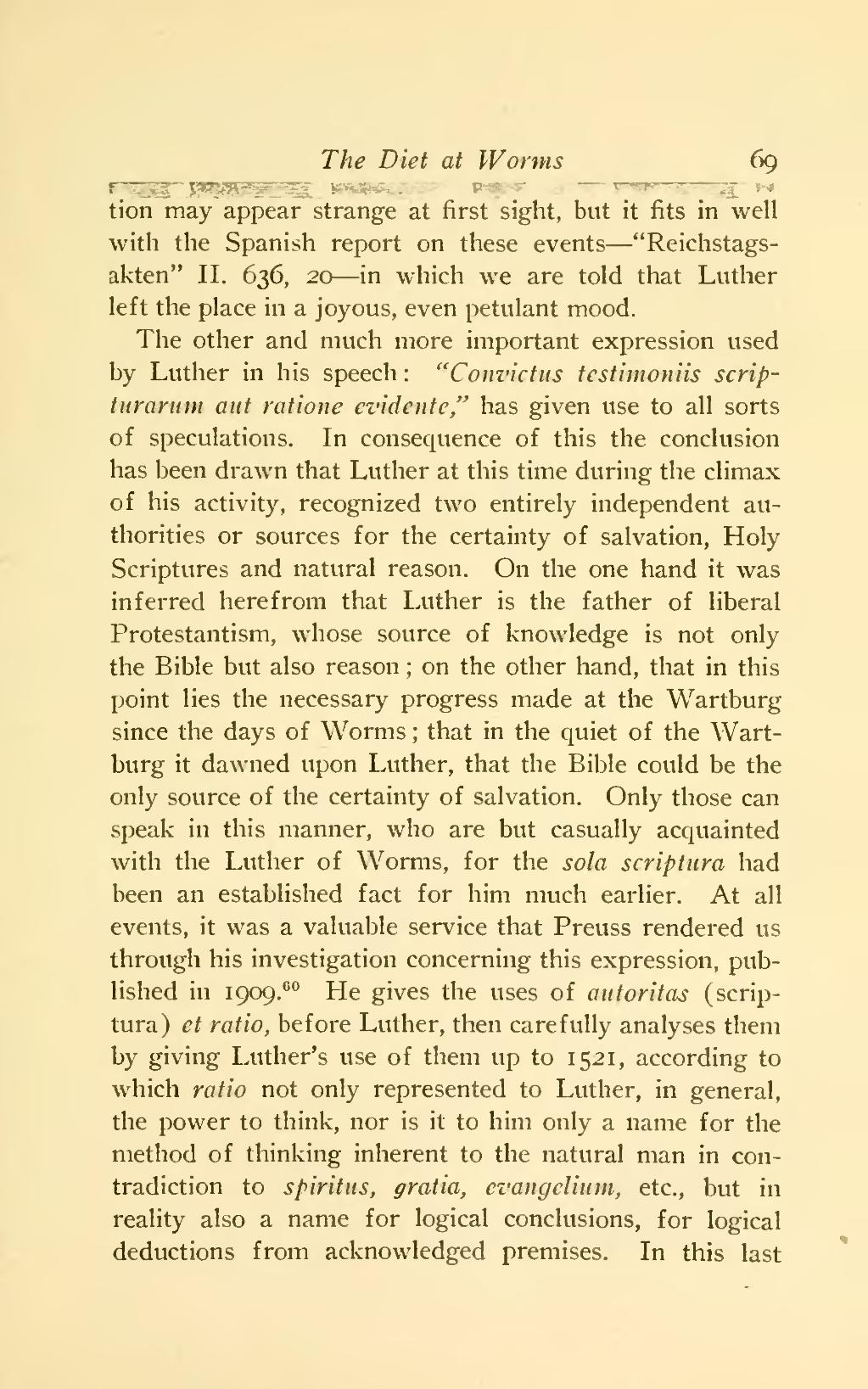tion may appear strange at first sight, but it fits in well with the Spanish report on these events—"Reichstagsakten" II. 636, 20 — in which we are told that Luther left the place in a joyous, even petulant mood.
The other and much more important expression used by Luther in his speech: "Convictus testimoniis scripturarum aut ratione evidente," has given use to all sorts of speculations. In consequence of this the conclusion has been drawn that Luther at this time during the climax of his activity, recognized two entirely independent authorities or sources for the certainty of salvation, Holy Scriptures and natural reason. On the one hand it was inferred herefrom that Luther is the father of liberal Protestantism, whose source of knowledge is not only the Bible but also reason; on the other hand, that in this point lies the necessary progress made at the Wartburg since the days of Worms; that in the quiet of the Wartburg it dawned upon Luther, that the Bible could be the only source of the certainty of salvation. Only those can speak in this manner, who are but casually acquainted with the Luther of Worms, for the sola scriptura had been an established fact for him much earlier. At all events, it was a valuable service that Preuss rendered us through his investigation concerning this expression, published in 1909.60 He gives the uses of autoritas (scriptura) et ratio, before Luther, then carefully analyses them by giving Luther's use of them up to 1521, according to which ratio not only represented to Luther, in general, the power to think, nor is it to him only a name for the method of thinking inherent to the natural man in contradiction to spiritus, gratia, evangelium, etc., but in reality also a name for logical conclusions, for logical deductions from acknowledged premises. In this last
